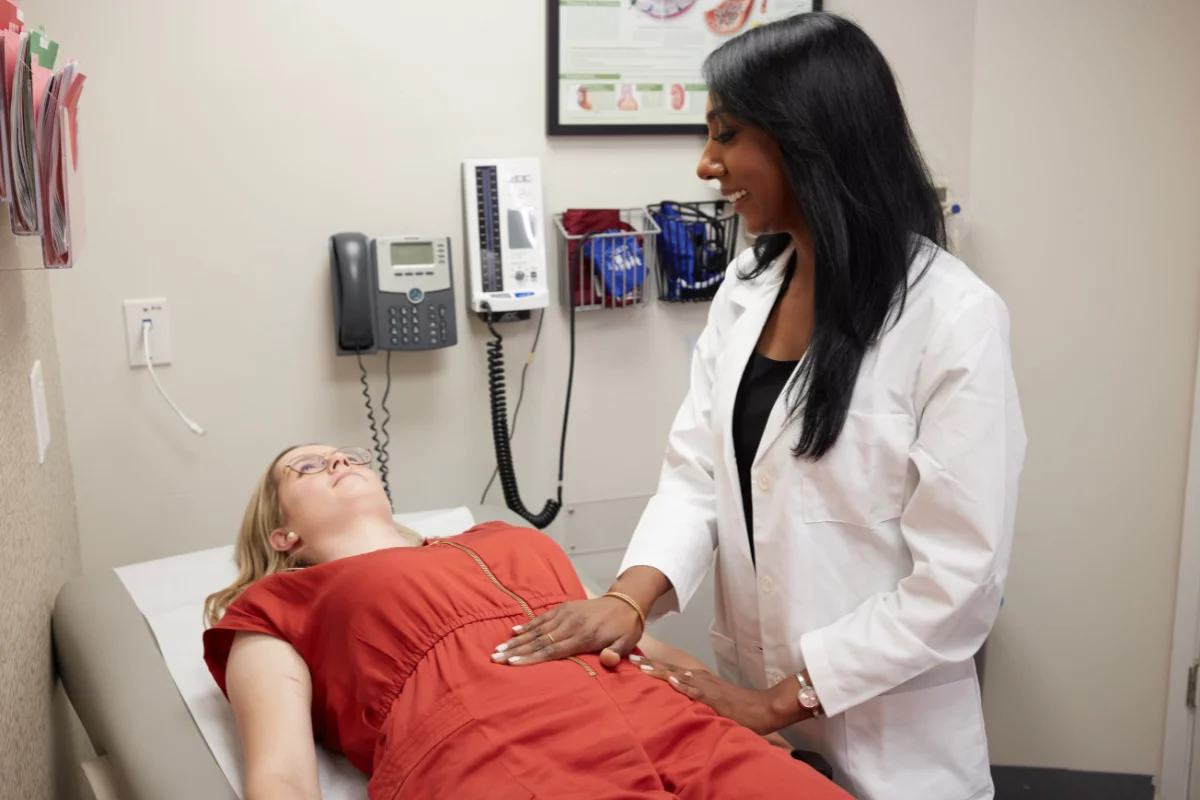Ulcerative colitis is an autoimmune disease which causes inflammation, irritation, and the growth of ulcers in the rectum and colon. Like Crohn’s disease, ulcerative colitis falls under the umbrella term of inflammatory bowel disease (IBD). Ulcerative colitis can be mild or severe and may be localized in specific areas or generalized throughout the colon. While this inflammatory bowel disease can affect people of any age, symptoms most often make their first appearance between the ages of 15 and 25 years old.
As opposed to colitis, which is caused by a viral or bacterial infection of the bowel, the causes of ulcerative colitis are not fully understood. Symptoms of ulcerative colitis appear to result from an abnormal immune response in which the body attacks its own tissue, but what triggers this inappropriate response remains unclear. It is hypothesized that there is a genetic component to the disease, but many people have ulcerative colitis without any associated family history of it.
Symptoms will tend to present differently from person to person depending on the condition’s severity, location, and other factors. People with ulcerative colitis typically have loose or watery stools or diarrhea, which may contain noticeable amounts of blood or mucus. Fecal incontinence and fecal urgency are often associated with ulcerative colitis, and you may need to frequently get up at night to use the bathroom.
Other symptoms which may occur include abdominal pain, fever, weight loss, and nausea. Up to 30% of people with inflammatory bowel disease may also experience inflammation in other parts of the body, causing arthritis, conjunctivitis, and rashes.
There is no known way to predict whether ulcerative colitis will develop, but many doctors believe that there is a genetic predisposition to the disorder. Peak incidence of ulcerative colitis takes place between the ages of 15 and 25, but it can affect people of any age.

A gastroenterologist will meet with you to go over your symptoms, medical history, and any medications which you are currently taking. They may recommend blood testing to look for any signs of UC. A definitive diagnosis can be achieved through endoscopic procedures which are performed to visually examine the colon and take tissue samples for biopsy if any ulcers or abnormalities are found. Medical Offices of Manhattan’s expert gastroenterologists are able to perform endoscopies and colonoscopies in-office at our Upper East Side surgical suite.
There are several medications which may help to manage ulcerative colitis or Crohn’s disease, including anti-inflammatories, steroids, immunomodulators, and biologics. Factors such as diet may also affect incidence of symptoms, and should also be taken into consideration when managing IBD. In cases of severe ulcerative colitis, surgery may also be an option.
While there are steps that can be taken to manage ulcerative colitis and have an improved quality of life after the disease has emerged, there is no known way to prevent IBD.
If left unaddressed, ulcerative colitis can become worse over time, spreading to other parts of the colon. You may continue to experience symptoms such as fatigue, bloating, or unintended weight loss. It may lead to electrolyte imbalances or anemia, a condition which is caused by a lack of healthy red blood cells. Severe conditions could lead to serious infections or colonic perforation. Ulcerative colitis is also associated with an increased risk of colon cancer and should be monitored over time via colonoscopy.
The other disorder falling under the heading of inflammatory bowel disease (IBD) is Crohn’s disease. Crohn’s results from a similar inflammatory response to UC and causes many of the same symptoms, but while ulcerative colitis appears only in the rectum or colon, Crohn’s disease may affect any part of the digestive tract.
Ulcerative colitis is a form of inflammatory bowel disease (IBD) which causes irritation, inflammation, and ulcers in the rectum or colon. The most common symptoms include diarrhea, blood or mucus in stools, but it can also cause bloating, abdominal pain, unexplained weight loss, and other issues. While the exact causes of ulcerative colitis are not known and there is no known prevention for it, the disease can be treated and managed through many methods including medications, lifestyle changes, and surgery when necessary.
If untreated, this disease can cause an increased risk of infections of the colon, as well as secondary conditions such as arthritis, anemia, and colon cancer. At Medical Offices of Manhattan, we are able to diagnose ulcerative colitis and Crohn’s disease through endoscopic procedures which allow your doctor to visually examine the colon and remove tissue samples for biopsy if necessary.



